
Nothing will end war unless the people themselves refuse to go to war. - Albert Einstein
Be the change that you want to see in the world. - Mohandas Gandhi
Wars are poor chisels for carving out peaceful tomorrows. - Martin Luther King, Jr.

Beginner's Guide to Peace - Fellow Travelers
“We are all travelers in the wilderness of this world, and the best we can find in our travels is an honest friend” - Robert Louis Stevenson
“To know the road ahead, ask those who are coming back.” - Chinese proverb
The Fellowship of the NAP
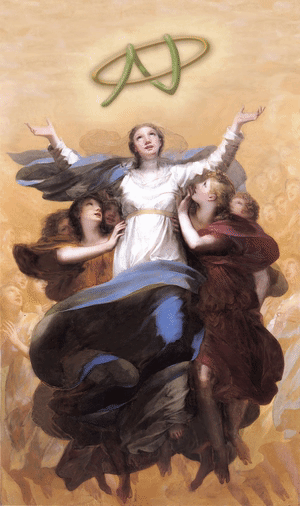
In J.R.R. Tolkien’s Lord of the Rings trilogy, the Fellowship of the Ring is gathered for the expressed purpose of destroying the ring of power. The One Ring, you see, was created by the evil one in order to rule all. Anyone attempting to wield the ring’s power, even in the hope of doing good, risked corruption. It was agreed that no one should ever possess the ring as its intoxicating force inevitably led its bearer into darkness, leaving behind a trail of death and destruction.
Constructive Anarchy
While working on the Lord of the Rings, Tolkien wrote to his son that “my political opinions lean more and more to
Out of Their Minds
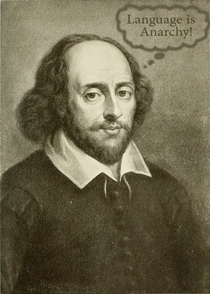
For many people anarchy is a scary word. For some the word conjures images of mad bombers and chaos but the word “anarchy” simply means the absence of rulers. It does not necessarily mean the absence of rules. Language, for example, is anarchic in that there is a structure with rules but there is no centralized authority enforcing proper usage nor is there an agency for creating new words[2]. When the publishers of the Oxford Dictionary add new words to their volume, they are only recognizing current usage and documenting its evolution. Shakespeare invented and combined hundreds of words, many in common use today, not because he had any authority to enforce their usage but because the words and combinations he coined enhanced the ability of people to communicate. In this matter Shakespeare was a creative anarchist, fully
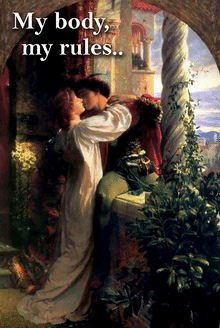
Dating and courtship rituals are other examples of human interactions that vary widely among cultures but are typically anarchic in nature, and increasingly so. As with language,
Indeed,
The Varieties of Anarchic Experience
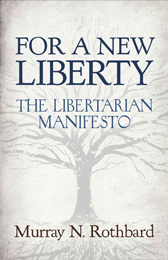
In today’s modern world most philosophical anarchists generally support the

Most libertarians, anarcho-capitalists, voluntaryists, agorists and anarcho-libertarians, on the other hand, are more consistant in their support of the
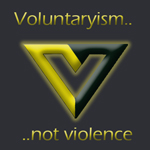
Finally, out on the fringes, there are the completely self-contradictory nutcases who attach to themselves the term “anarchist” while simultaneously inflicting violence against both people and property. During the 1960’s, for example, there were a small number of supposedly antiwar protestors who would bomb buildings and sometimes kill people
Friends of Liberty, United for Peace
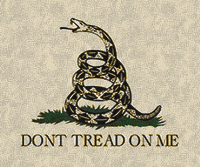
"As for politics, I’m an anarchist. I hate governments and rules and fetters. Can’t stand caged animals.
Advocates of the
Leading the Way
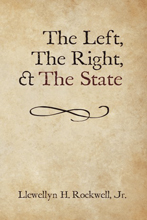
The following is a short list of people currently active in the liberty movement that I would nominate as key members for the
Lew Rockwell (
It was through LewRockwell.com that I first came in contact with the writings of Murray Rothbard and a number of other great libertarian writers. Lew was a great friend and colleague of Murray's and has written a number of books himself including The Left, the Right and the State and Against the State: An Ararcho-Capitalist Manifesto.
I have long admired Lew for his
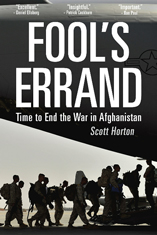
Scott Horton (
I have been listening to Scott's podcasts for more than 15 years. There are times, however, when I need to take a break for a few weeks because I can no longer bear to hear any more of the vast and intentional evil that the American Empire has waged against large numbers of peoples across the planet. Scott is the kind of person I would want working next to me on any kind of dirty, thankless job.
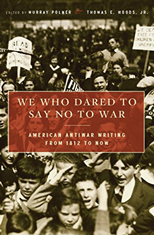
Tom Woods Jr. (
This is the kind of guy I would want to be my next door neighbor, and one of the few that I would trust with the destruction of the Ring of Power, metaphorically speaking.
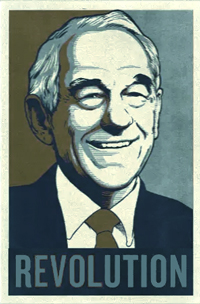
Dr. Ron Paul (
A lot of people have jokingly referred to Dr. Paul as the gateway drug to libertarianism. Unfortunately a lot of people, especially his former colleagues in Congress, have preferred the drug of power and the rush of war. He has a daily video podcast called The Ron Paul Liberty Report as well as a site for his Ron Paul Institute for Peace and Prosperity.
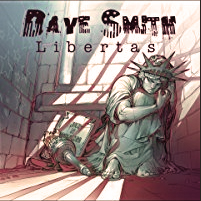
Dave Smith (
Stefan Molyneaux (
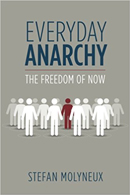
I especially liked his "The Truth About.." episodes that used to be available on YouTube. Unfortunately his work has been banned from that platform because of his repeated philosophical and fact based challenges to orthodoxy. While I don't agree with everything he says, I would have enjoyed having him as a professor, mostly because of his willingness to examine the facts and follow the logic and evidence, wherever that ultimately leads.
In addition to those above, there are a great many other hard working libertarians making significant contributions to the cause of peace and liberty. Some of these include Jeffrey Tucker, James Bovard, Michael Malice, Thomas DiLorenzo, Buck Johnson, Marc Clair, Walter Block, Robert Higgs, Stephan Kinsella, Michael Rozeff and Pete Quinones. Additional information can be found on the Resource page.
A Society of Friends
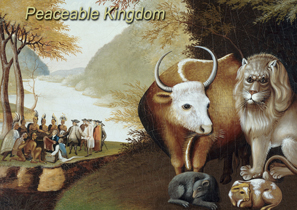
As with any group of fellow travelers, there will always be some disagreement among friends and companions with regard to goals, ideals and understanding of the world. While I have gained much from my study of the world's great religions, I have a special place in my heart for the Religious Society of Friends, more popularly known as
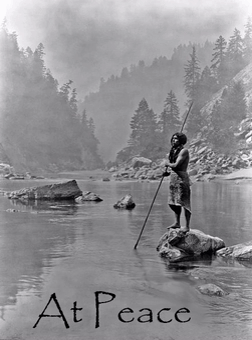
As Murray Rothbard describes in
“Pursuing a policy of peace, incomprehensible to most of the other colonists, who were generally conscienceless in slaughtering the Indians, the Quakers of Pennsylvania built no forts, established no militia, and hired no scouts and Indian fighters. And by pursuing a policy of peace and no armaments, they found,
Considering all believers to be members of the priesthood, some branches of Quakerism are very anarchic in their organization. Additionally, while some offshoots seem to have a questionable understanding of the operation of the free market, the BBC none-the-less once described them as “natural capitalists”[4]. Members of this group have also pushed hard for
Paying Respects
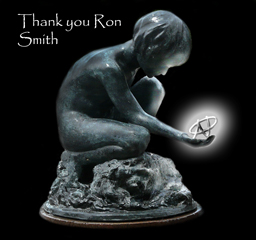
In keeping with the intimate nature of this section, it would be ill-mannered not to mention one other personal influence that guided me to the Liberty Movement and the
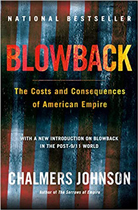
Through his discussions and interviews, I was exposed to the unintended consequences of government policies in books such as Blowback by Chalmers Johnson and Preferential Policies by Thomas Sowell. I was also introduced to
Though Ron Smith may never have made the leap to fully support libertarianism in his lifetime, it is through his presentation of divergent ideas that I myself was able to reach that conclusion. For that I am forever grateful.
The Journey Ahead
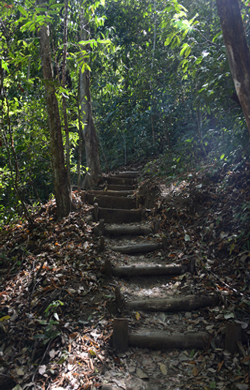
Kudos on coming so far. Be prepared, however, as some of the remaining sections may be tricky. On the next part of our journey we will navigate Treacherous Roads, confront Mirages and Delusions, and discover the risks of Losing the Way. We will then take note of Dead Ends where others have faltered and wrap up by considering the risks and rewards of Going Off Road. For those with a stout heart and an inquisitive mind, we bid thee fare well!
------------------------------------------
Essentials
-Anarchy is the absence of rulers. It does not necessarily mean there are no rules nor is it a synonym for chaos.
-Power is a corrupting force as has been demonstrated throughout history. It is also a common theme in literature.
-Although we each have our own journey to travel through life, our paths often intersect and parallel those others have traveled. Experienced fellow travelers can serve as helpful guides on the path of peace, liberty and prosperity.
Further Explorations
Chalmers Johnson describes the unintended consequences of U.S. government interference in other countries in Blowback: The Costs and Consequences of American Empire (American Empire Project).
Thomas Sowell describes the destructive outcomes of government preferential policies across the globe in Preferential Policies: An International Perspective.
Thomas DiLorenzo provides multiple historical examples of how the free market has worked much better than government in How Capitalism Saved America: The Untold History of Our Country, from the Pilgrims to the Present.
__________________________________
Notes
1. ^ Jeff Riggenbach. The Libertarian Tradition. (Kindle Locations 11807-11808).
2. ^ In George Orwell’s novel 1984, the government controls the use of language. By eliminating vast numbers of words, it seeks to limit thought and thus opposition to Big Brother.
3. ^ Murray N. Rothbard. Conceived in Liberty (LvMI). (pp. 557-558). Ludwig von Mises Institute. Kindle Edition.
4. ^ The Quakers - Wikipedia.org.
5. ^ The Old Right - Wikipedia.org.
6. ^ Ron Smith - The Baltimore Sun.
7. ^ Phil Donahue - Wikipedia.org.
Picture Credits
^ The Fellowship of the NAP: Assomption de la Vierge. Painting by Pierre Paul Proud-hon, 1820's?. Public domain image, downloaded from ClassicArtPaintings.com, modifications by Andrew Lesko. ^ Language is anarchy! William Shakespeare. Public domain image downloaded from Wikimedia Commons. ^ Love is anarchy! Romeo and Juliet. Painting by Frank Dicksee, 1884. Public domain image downloaded from Wikimedia Commons. ^ Anarcho-Capitalism: Original design unknown. ^ Voluntaryism: V for Voluntary.Original image by Nicklas W Bjurman. Public domain image downloaded from Wikimedia Commons. ^ Don't tread on anyone: The NAP symbol and composition by Andrew Lesko. May be used under Creative Commons Attribution-Share Alike 4.0 International license. ^ A Society of Friends: Peaceable Kingdom. Detail of a painting by Edward Hicks, 1826. Public domain image downloaded from Wikimedia Commons. ^ At Peace: Hupa man-A smoky day at the Sugar Bowl (1923). Library of Congress public domain image, downloaded from Wikimedia Commons, modifications by Andrew Lesko. ^ Paying Respects: Original composition from a photo of a water fountain in Boston by Andrew Lesko. ^ The Journey Ahead: Photo by Andrew Lesko.